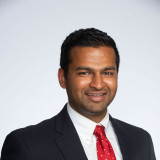
Concierge medicine brings many ethical considerations into play as it tries to establish itself as a more commonly acceptable mode of care delivery. One of the drivers to establish concierge practice has been physician burnout. Doctors long for the days of 30-minute patient visits, less paperwork, and establishing personal relationships with their patients. The argument goes that if you can cap your patient load to a small number of patients, but get to know those patients well and for a lifetime, then you will be happier with this more personal delivery of care. The ethical argument against concierge services relies on the well-documented decline in physicians across the U.S.
While a physician who chooses to combat burnout believes that lowering their personal panel of responsibility from several hundred patients to several dozen patients may improve their quality of life, they also exacerbate physician access challenges for the patients they dropped from their panel. Some of these patients may have been dropped because they could not afford the concierge “retainer” fee, and therefore, were priced out of health care. This disparity will be most marked between rich and poor patients, something that remains an eternal debate in health care: should care only be for those who can afford it? The flipside to the argument is whether or not those with hard-earned money should be allowed to purchase better services in a free market economy.
Another challenging element to contend with is the idea of cherry-picking or “cream-skimming,” where physicians essentially price out their services to only serve those with money. The monied class generally has already had access to better care and are generally healthier (better living conditions, more likely to already seek regular care, access to better food). Ironically the patients who are least healthy or have access to the least resources end up most likely to not get care. There are typical conservative arguments that those who “make something of themselves” should be able to get the best, but with health care, this becomes a more challenging question regardless of political ideology. Health care impacts a person’s entire ability to function in society and some argue that it is a basic human right. Concierge medicine belies this consideration by focusing only on clientele who can afford these services.
One of the other ethical challenges surrounds utilization of the services and any detriment this may have to the physician. For those physicians who choose to price their services as more affordable for a larger census of patients, they may face “super-users” or high-utilizing patients. These patients, with the barrier of cost removed, may overuse medical services to the detriment of the physician; this is the classic example of adverse selection. If a physician chooses to be altruistic and lowers concierge costs, they expose themselves to the liability of patients who may happily pay a one-time fee and then visit their doctor for every little thing that comes up. A proxy for this exists: Medicare. There is a theory that Medicare patients overuse health care but this has not been borne out to be true in every state and is still not well studied. The double whammy may result if sick patients are willing to pay an affordable concierge fee and then utilize the health care system often and for extremely complex or costly services. In a typical fee for service system, the physician is insulated against overuse because they can charge for each item used; in concierge practices you do not have the same structure and therefore may bear some of this overuse cot. Essentially, the ethical challenge boils down to pricing a concierge service to serve as many patients as possible while also limiting access to super-utilizers.
Finally, one of the central debates that has yet to be solved is what exactly physicians are by definition: should they be considered public goods that are meant to serve/protect the public in the way firefighters and policemen are, or, are they entrepreneurs and free workers who have no obligation to the public? Originally, doctors were conceived as businesspeople, much like a carpenter or a plumber running their business were. Physicians had to make money, and those who could afford this specialized care could be well, and those who could not had to seek alternative means (home remedies, cultural practices, etc.). Looking all the way back to the days of ancient Egypt, the only people who could get medical care were the Pharaohs and other royalty. The common person did not have the luxury to seek health care. With health care changing over the centuries, government funding of medical schools and training programs, and the explosion of population, the role of physicians is under renewed scrutiny. Many think doctors owe a debt to society and therefore by seeing fewer or richer patients, do a disservice to the society that has supported their training in some way. As outlined above, there is also a case being made for health care as a human right along with food, security, and shelter. Until we have intelligent conversations that consider the ethical challenges of health as a right, we cannot answer the question about whether or not concierge medicine is an ethical practice.
Nishant Garg is a 5th year MD/MBA student currently applying into a Urology residency program. His interests include health outcomes, care delivery models, and managing health care costs through technology innovations and operations designs. During his free time he consults for physicians bringing pharmaceuticals to the market, following DC and Boston sports, and watercolor painting.







